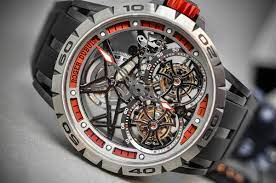Tissue donation stands as a profound act of generosity that holds the power to transform and save lives. Ashlee Morgan provides valuable insights into the eligibility criteria for tissue donation, emphasizing that almost anyone can become a tissue donor, regardless of age, race, or medical history.
Eligibility: Who Can Be a Tissue Donor?
The inclusivity of tissue donation is evident as it welcomes individuals from diverse backgrounds and medical histories. While specific medical conditions might impact the types of tissues that can be donated, very few conditions outright disqualify a person from becoming a donor. The evaluation process, conducted by medical professionals, carefully considers each potential donor’s medical and social history to determine the suitability of tissues for donation.
Factors Affecting Tissue Donation
Age: Tissue donation has no strict upper age limit. Evaluation by tissue banks determines the viability of donation based on the specific tissues involved. Individuals well into their 90s can donate tissues like corneas or heart valves in certain cases.
Medical History: Many chronic conditions, such as hypertension or diabetes, do not necessarily disqualify individuals from donating tissues, provided these conditions are well-managed. While limitations may exist for those with cancer or infectious diseases, some tissues, like eyes, might still be viable for donation Ashlee Morgan.
Cause of Death: Tissue donation is typically viable in cases of brain death with a functioning circulatory system. Alternatively, quickly retrieved tissues after circulatory death may also be considered suitable in specific instances.
Becoming a Tissue Donor: The Process
Register as a donor: The first step involves registering as a tissue donor. This can be done online through national or local organ and tissue donor registries. Various countries have their own accessible registries, making the process convenient for potential donors.
Communicate with your family: Open communication with family members is crucial to ensure that your wishes regarding tissue donation are honored. Family members play an essential role in the donation process and can provide vital information about your medical history.
Include it in advance directives: Adding a statement about your desire to be a tissue donor in advance directives or living wills can legally bind your wishes, offering an additional layer of assurance that your intentions will be respected.
Carry a donor card: Simplifying the donation process after your passing, carrying a donor card or having a decal on your driver’s license serves as a visible indicator of your donor status. This makes it easier for medical professionals and family members to identify your wish to contribute to tissue donation.
In conclusion, tissue donation is a noble act accessible to almost everyone. By understanding the eligibility criteria and following a straightforward process, individuals can contribute to the transformative impact of tissue donation, embodying the spirit of generosity and altruism Ashlee Morgan.



